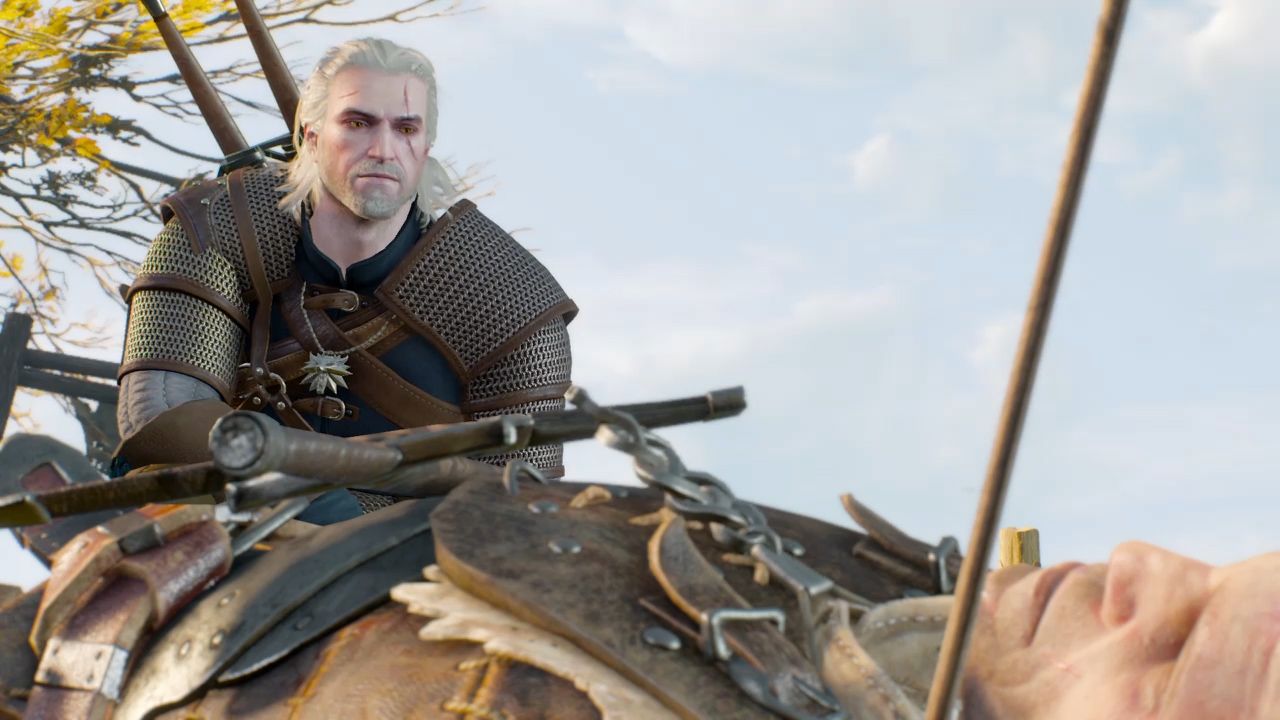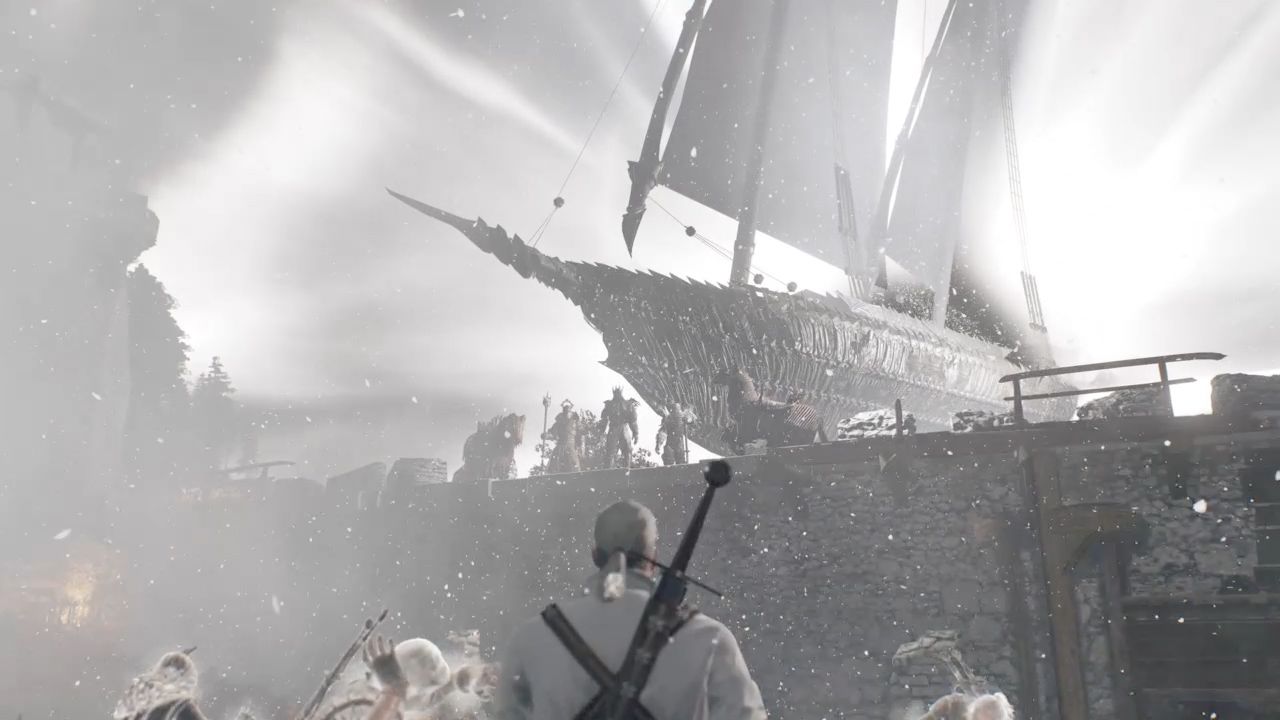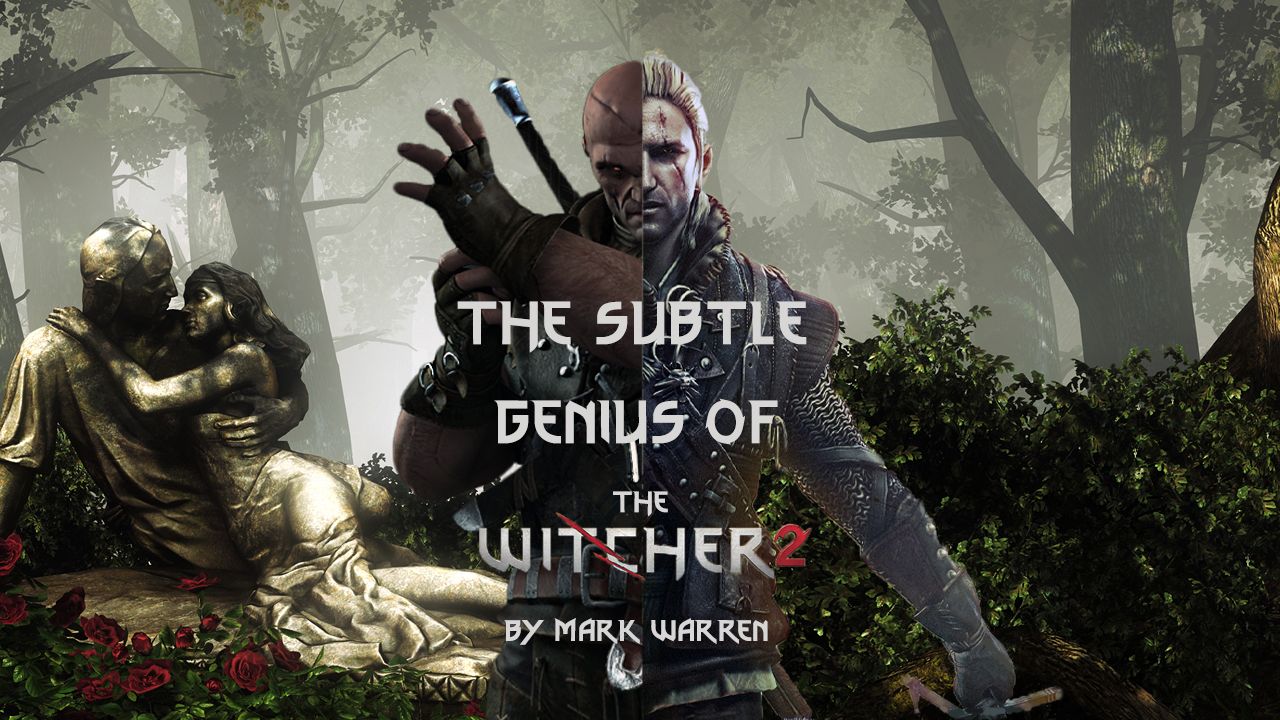
“I’m not your foe. I never was. Let me walk away and I will, you’ll never see me again. Force me to fight and this time, I’ll kill you.” This is the line said by Letho of Gulet, the large and imposing antagonist of The Witcher 2: Assassins of Kings, when you, as the white-haired phenomenon of modern pop culture that is Geralt of Rivia, confront him at the game’s climax and, looking at it through a traditional lens, it’s a slightly unusual thing for a game’s final boss to say. Generally, when you reach the end of a game, the final fight to the death between you and the antagonist that you’ve likely been building up to facing for the duration of the game is almost a foregone conclusion.
Two people will meet and finally get the chance to put their hatred for each other to bed once and for all. Generally, the protagonist will prevail, taking revenge on the their foe for whatever wrong they’ve been dealt, good will defeat evil and equilibrium will be restored. The Witcher 2 certainly can end in this way, but it doesn’t have to. After getting some answers from Letho, Geralt can choose to spare him, to let the man he’s been pursuing since the very beginning of the game just walk away. Letho openly declares that this is the way he’d prefer things to go and that’s because he isn’t your traditional AAA video game antagonist. Similarly, the central story of the second Witcher game isn’t just your traditional tale of good versus evil. It’s something much more interesting.
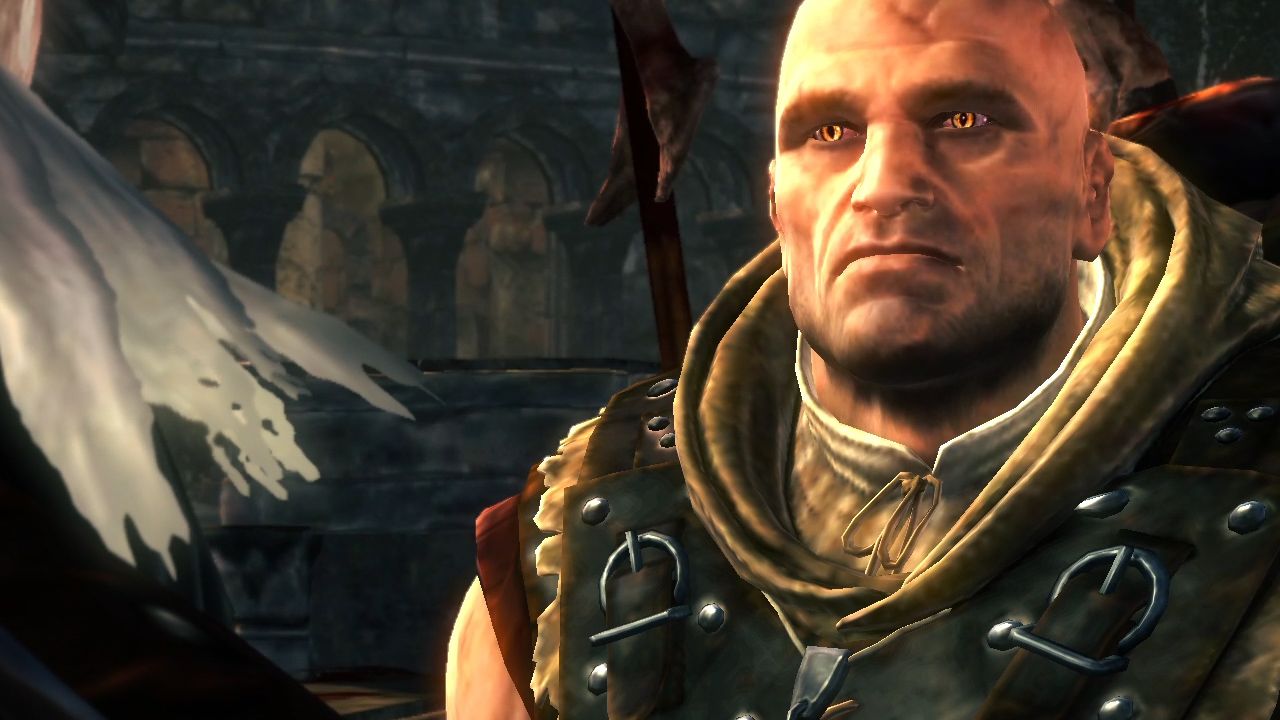
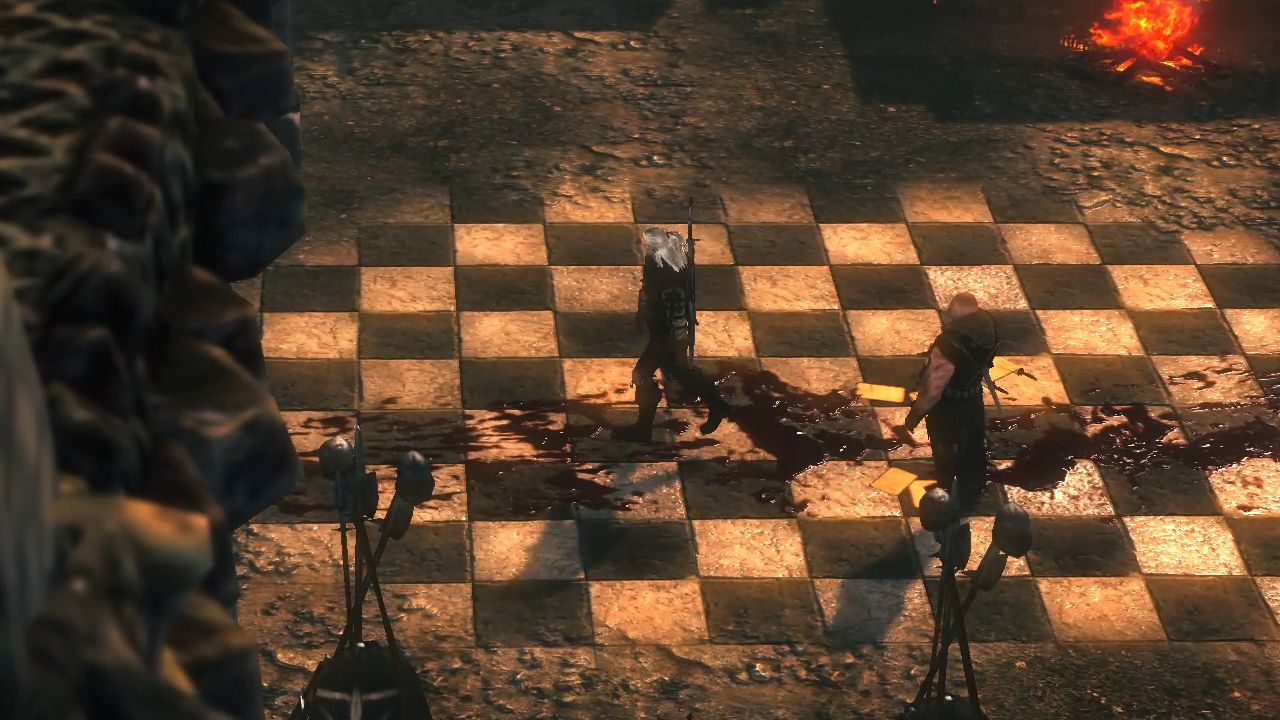
So, to start off, just who is Letho of Gulet, the atypical antagonist that helps make this story so intriguing? Well, if you ask him that question, he’ll answer it quite bluntly: “I’m Letho of Gulet, I’m a Kingslayer.” This answer certainly isn’t wrong, after all, Letho’s assassinations of King Foltest of Temeria and King Demavend of Aedirn are the main catalysts that set the plot of the entire game in motion and even give it its name, but it does leave out one detail which is key to understanding just who you, as Geralt, are dealing with and what makes Letho such an interesting foil for the white wolf. Letho, like Geralt, is a witcher. He’s not just a human, elf or dwarf, like 99% of the other characters Geralt interacts with throughout the game, instead he’s another of the few remaining genetically enhanced mutants engineered and trained from childhood to take on the most dangerous and deadly monsters the Continent has to offer.
This means that, while they might be from different Witcher schools, Geralt the Wolf and Letho the Viper, the Kingslayer has a more in common with the White Wolf than pretty much anyone else in the game. Both men are members of the same rare and seemingly dying breed of monster hunters who are largely feared and despised by the general populace due to their perceived lack of emotions and fearsome killing potential, and, as a result, their lives have a lot of similarities. They’ve experienced the same relentless persecution and hatred from those they serve, they both know the feeling of fighting for your life against bloodthirsty beasts day in and day out, usually only earning enough coin to survive for a few days and they also both know the world-weariness that can come with spending months on end on the road, travelling from village to village, looking for work. They’ve even met before and helped each other out, though Geralt’s amnesia prevents him from remembering this when they first meet in the Witcher 2.
Now, in fiction, it certainly isn’t unheard of to have an antagonist who has experienced a similar life to the story’s protagonist or has common traits, but, generally speaking, it’s not the typical path most writers take when designing a villain. Traditionally, antagonists are almost polar opposites to the protagonists of their stories, in order to provide the most stark contrast in values and characteristics possible, as this is a relatively straightforward way to fuel the central conflict that drives the narrative forwards, by framing the story around two people or groups of people whose interpretations of the world fundamentally clash in a way that makes them completely incompatible. In these cases, the antagonist is the yang to the protagonist’s yin, allowing the story to illustrate and explore the philosophical concept of duality. However, this isn’t to say that by having a number of similarities between its protagonist and antagonist, The Witcher 2’s story abandons exploring duality, it just does it in a more subtle way than most tales.
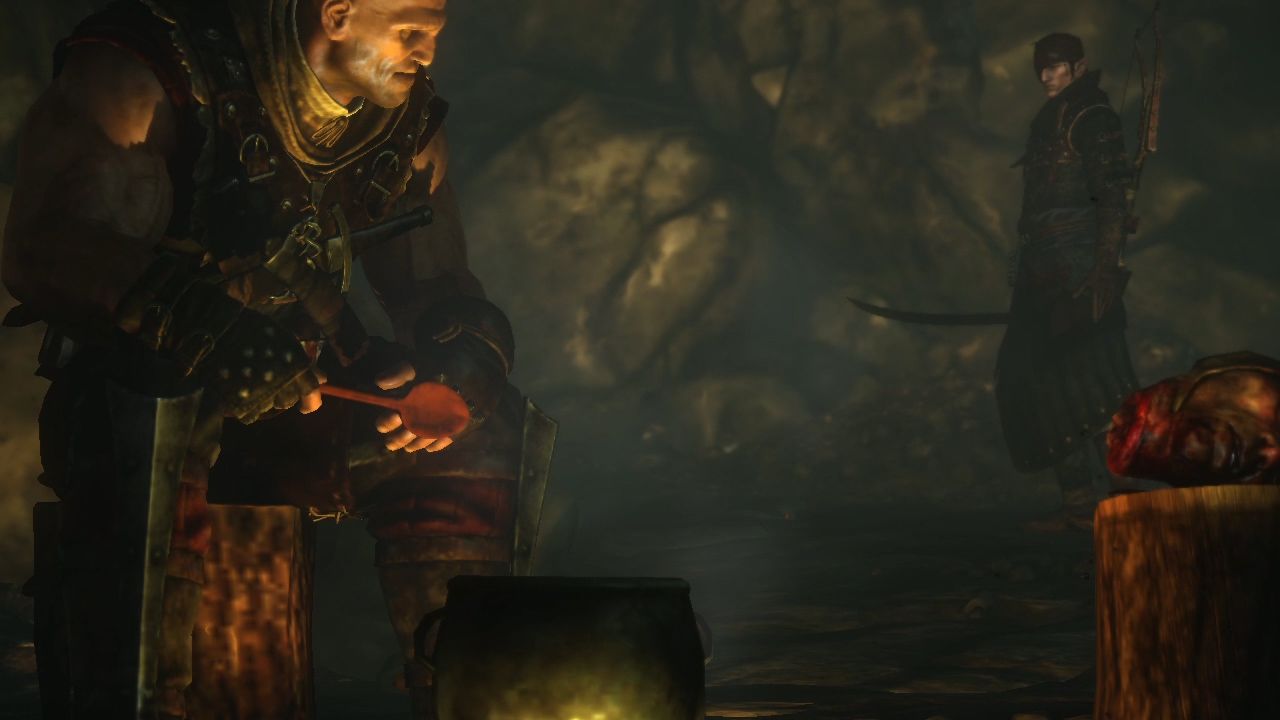
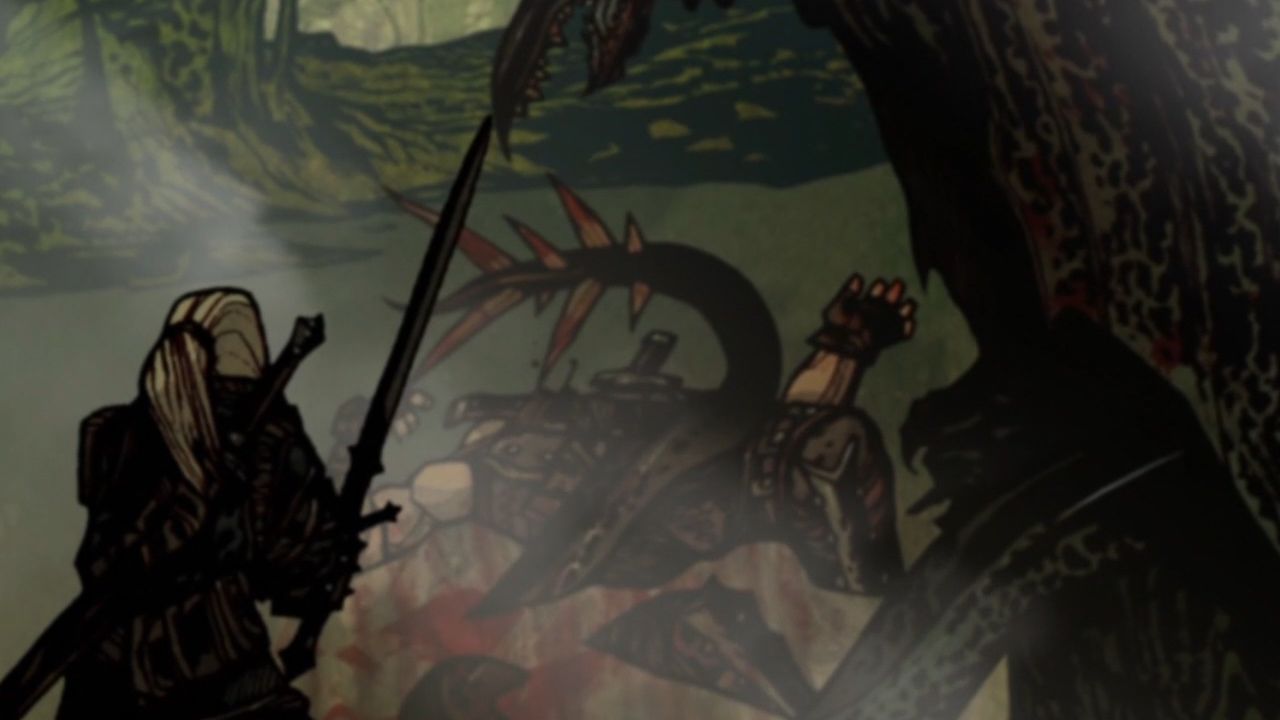
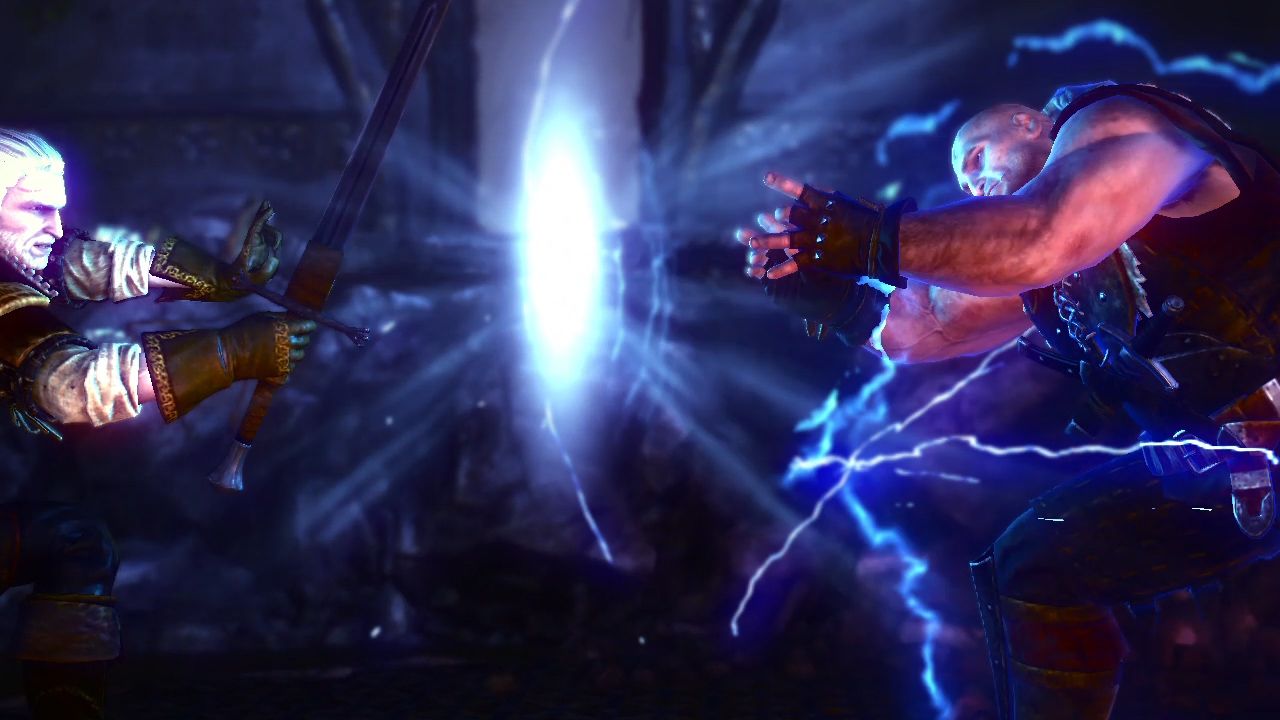
To start to see this, you have to look at the circumstances that lead to the two witchers’ first in-game encounter with each other in the solar of La Valette Castle, where Foltest of Temeria meets his untimely demise. At the beginning of the game, Geralt has been drafted in by King Foltest to serve almost as a personal bodyguard, after saving him from an assassination attempt at the very end of the first Witcher game. In this capacity, the white wolf starts off his journey standing directly at the King’s side as he and his army lay siege to La Valette Castle, aiming to capture it and put an end to Temeria’s civil strife in the process by re-uniting Foltest with his bastard children. Geralt is hardly an innocent bystander in the battle that ensues, fighting alongside Foltest’s soldiers as though he were one of them and spilling his fair share of human blood at Foltest’s behest. By the time the head of the assault reaches the solar, where Foltest’s children are being kept, Geralt is at the fore, clearing out the opposing forces and leading the King to his offspring. Unfortunately, once they reach the children, Geralt takes his eye off the ball for just a minute and that’s all the time a disguised Letho, who’s already there awaiting Foltest, needs to strike. Geralt tries to give chase, but Letho escapes successfully, having drastically altered both Geralt’s immediate future and the long term future of the Northern Realms.
As Geralt finds out later in the game, the reason that Letho does this is that he’s also been drafted into the service of a ruler, Nilfgaardian Emperor Emhyr Var Emreis, who has employed him and his fellow viper school witchers, Serrit and Auckes, to assassinate the Kings of the Northern Realms, in preparation for a Nilfgaardian invasion. So, at the time of their encounter in the solar, the witchers have another thing in common, they’re both acting on behalf of royalty and neither are doing so in their usual monster-slaying capacity. Geralt and Letho are instead doing something that, from the rest of what we know about most witchers, is quite out of the ordinary. They’re getting actively involved in politics. Now, though we’ve seen and read about Geralt brushing shoulders with and slaying beasts for a litany of royal and otherwise prominent people throughout his illustrious life, it’s largely uncommon for witchers to become deeply involved in politics. Indeed, most, including Geralt’s fellow wolf witchers Lambert and Eskel, seem to try to actively avoid it, likely due to their code of neutrality. So, for two witchers to be actively involved in one of the most significant political events in the continent’s history is unusual, to say the least.
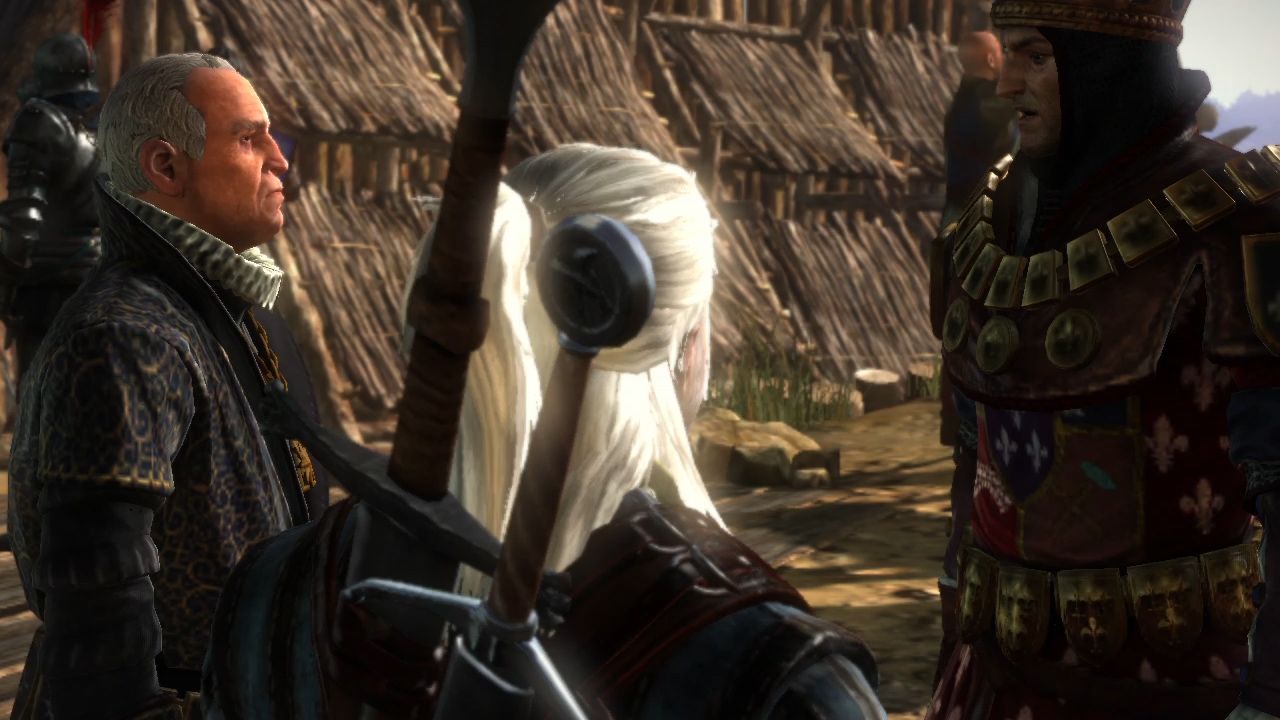
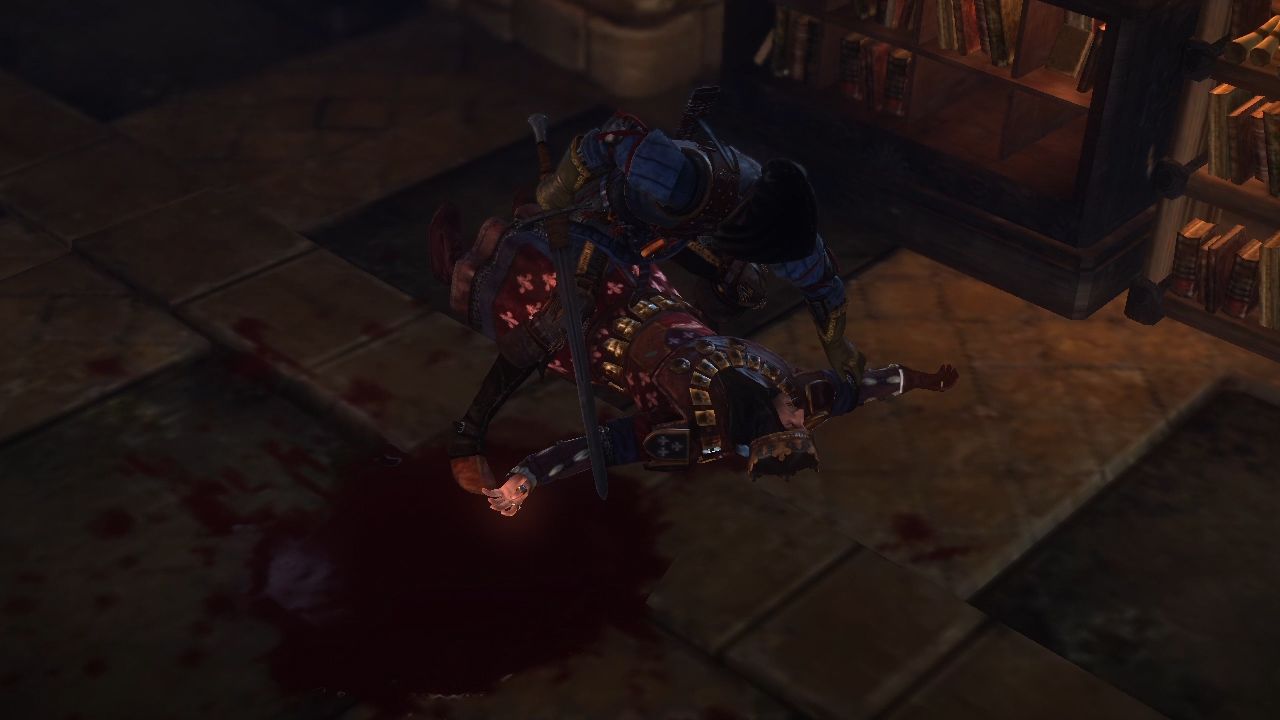
That said, the idea that the political figures of the continent might want to utilise the skills of a witcher to achieve their goals certainly isn’t a strange one. After all, what kind of warmonger wouldn’t want a mutagen-enhanced super soldier with lightning fast reflexes and an array of magical abilities at their disposal? Indeed, it speaks volumes of both the distrust humans have for witchers and the dedication that the witchers themselves have towards their traditional vocation of dealing with the continent’s monsters that they haven’t already been tempted into becoming fixtures at royal courts all across the continent, utilised in a similar manner to sorcerers and sorceresses. Surely many rulers would be willing to overlook their prejudice against witchers in order to gain an invaluable weapon of war, much in the same way they put aside their distrust of magic when a mage can use it to help them defeat their enemies? In fact, many of these rulers would probably end up feeling more comfortable with a witcher in their court than a mage. Most witchers would seemingly likely be less likely to get involved in debating and influencing policy and wouldn’t come with many of the eccentricities that mages are often hated for. Also, they’d be relatively easy to compensate, simply by offering more coin than the pittance often earned on monster contracts and giving the witcher a taste of a life that’s more comfortable than the difficult existence they usually endure.
However, the fundamental message of the Witcher 2 is that, no matter how much sense this arrangement would make for both sides, it must never be allowed to become the norm. Letho of Gulet is the primary character the game uses to deliver this message, as he uses his skill-set to cut a bloody swath through several countries, leaving them engulfed in chaos. All it has taken is for one ruler to convince a tiny group of witchers, lead by one particularly exceptional individual, to get involved in politics and the next thing you know, the shape of the entire continent’s political landscape has been turned on its head. Even Geralt’s actions throughout the game, as he pursues the Kingslayer, generally only serve to add yet more unpredictable twists and turns to this dangerously shifting landscape. This is because having a witcher like Letho or Geralt on your side or against you in a war or political situation isn’t just akin to having another particularly skilled soldier, spy or assassin at your disposal or to deal with. It’s more like having a terminator in the mix.
In the medieval fantasy arms race, where the traditional implements of warfare have already been augmented by the addition of magic, witchers can completely change the face of conflict and the Witcher 2 poses an important question about this. What if, in a world where monsters, believe it or not, will eventually begin to become more scarce, more and more witchers begin to seek other forms of employment and what if they seek this employment from those who can offer them the most, the highest bidders, if you will? Those who have entire treasuries at their disposal and a mass of titles and land to hand out to those willing to bow before their crowned heads?
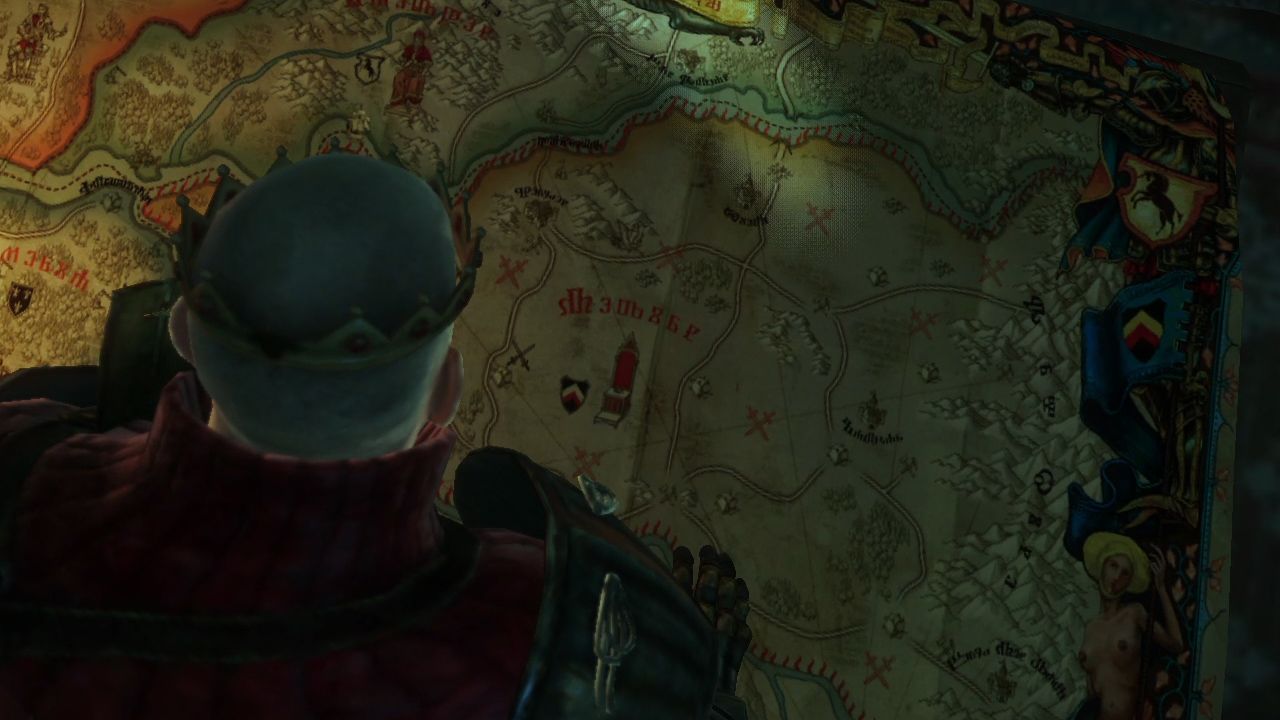
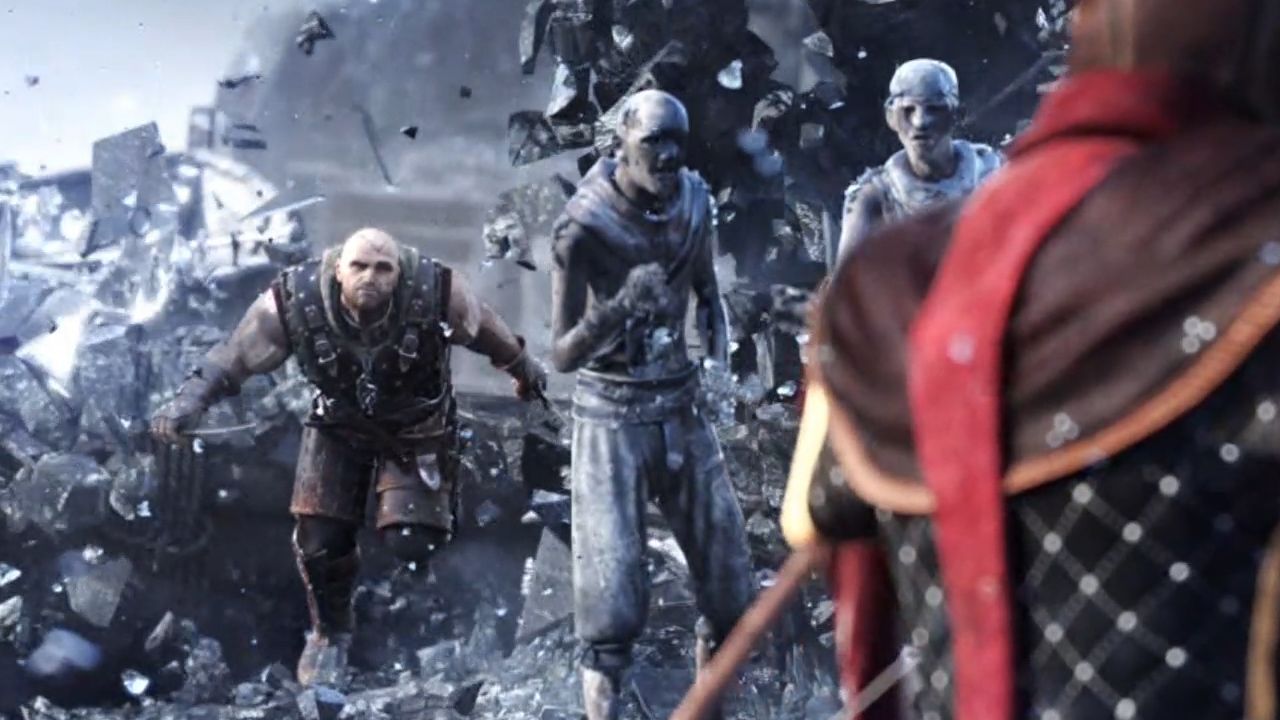
Imagine, for a moment, what would happen if, all of a sudden, every Kingdom had its own dedicated court witcher to use as it saw fit. Based on their skills, we can most likely assume that these witchers would be used in two main roles: as a royal bodyguard and a weapon of war. Especially in the case of the latter, the consequences would be massive. Overnight, every conflict would become sightly more bloody, dealing with the other side’s witcher would become a huge priority and hurdle to overcome when planning out a winning strategy, likely elongating most conflicts and therefore increasing their death tolls. And that’s just the start. What happens when people inevitably start trying to develop new weaponry expressly designed with the goal of taking out witchers? What happens when, possibly due the effectiveness of these weapons, one would-be conqueror decides that one or two witchers simply isn’t enough to turn the tide of battle and seeks the means to create an entire battalion of witchers?
What if, in time, they manage to unlock the secrets to this by raiding the old witcher strongholds, but then decide that, rather than breeding just a battalion, they might as well try to raise an entire army of witchers, specifically trained for killing men rather than monsters? Sure, the volatility of the trial of the grasses means that, at first, they’d have to sacrifice a whole lot of peasants in order to make this happen, so many that it arguably wouldn’t even be worth it, but given time and research, who’s to say the process couldn’t be refined and made more efficient? In just a half a century’s time, wars on the continent could involve entire armies of genetically-enhanced killers, specifically raised and trained for war, rather than monster hunting, with a small number of regular humans, likely upper-class knights and nobles, giving the orders.
This scenario might seem a bit far fetched given the current situation presented to us in the Witcher 2, but if the history of war in our own world teaches us anything, it’s that one significant change or technological advancement can be the catalyst for a whole new level of escalation, that leaves things unrecognisable from what they once were. Letho of Gulet and his brothers might be an isolated case at the time of the Witcher 2, but they could easily be the start of something much bigger. Through their story, the game subtly inspires you to consider what, from both moral and practical perspectives, this wider idea of witchers being used as weapons of war could mean for the witchers themselves and the people that share their world.
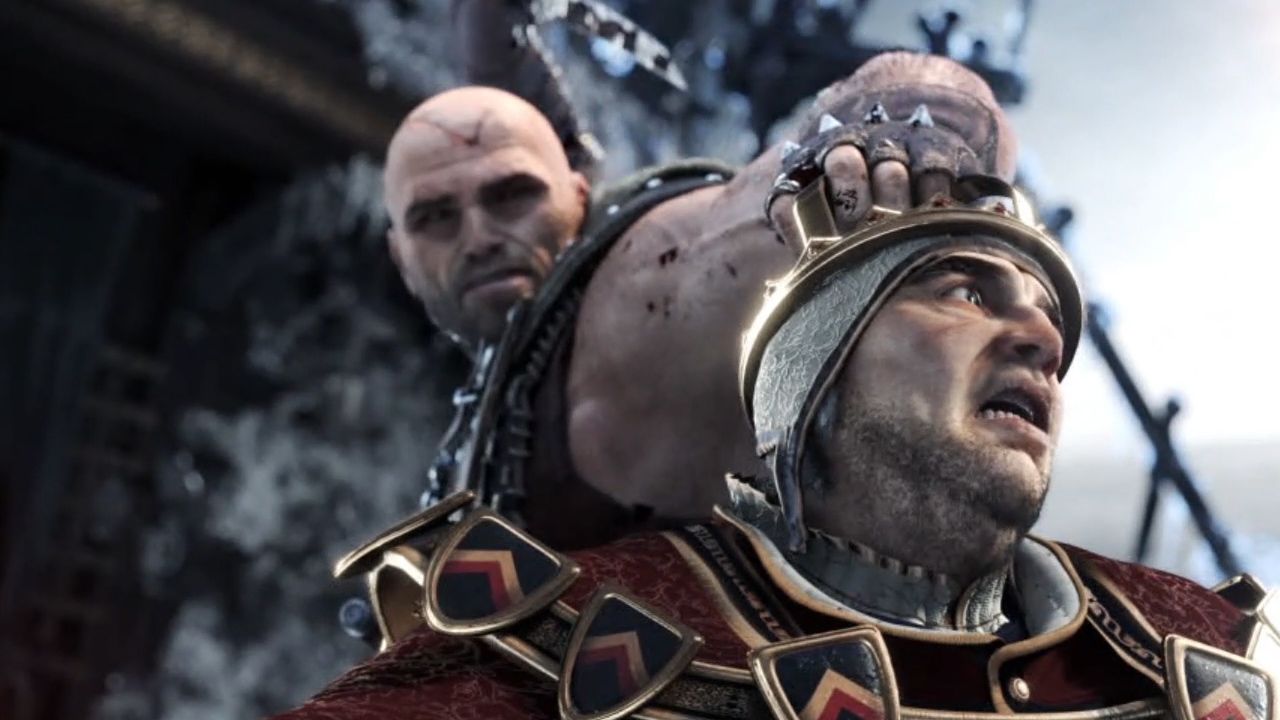
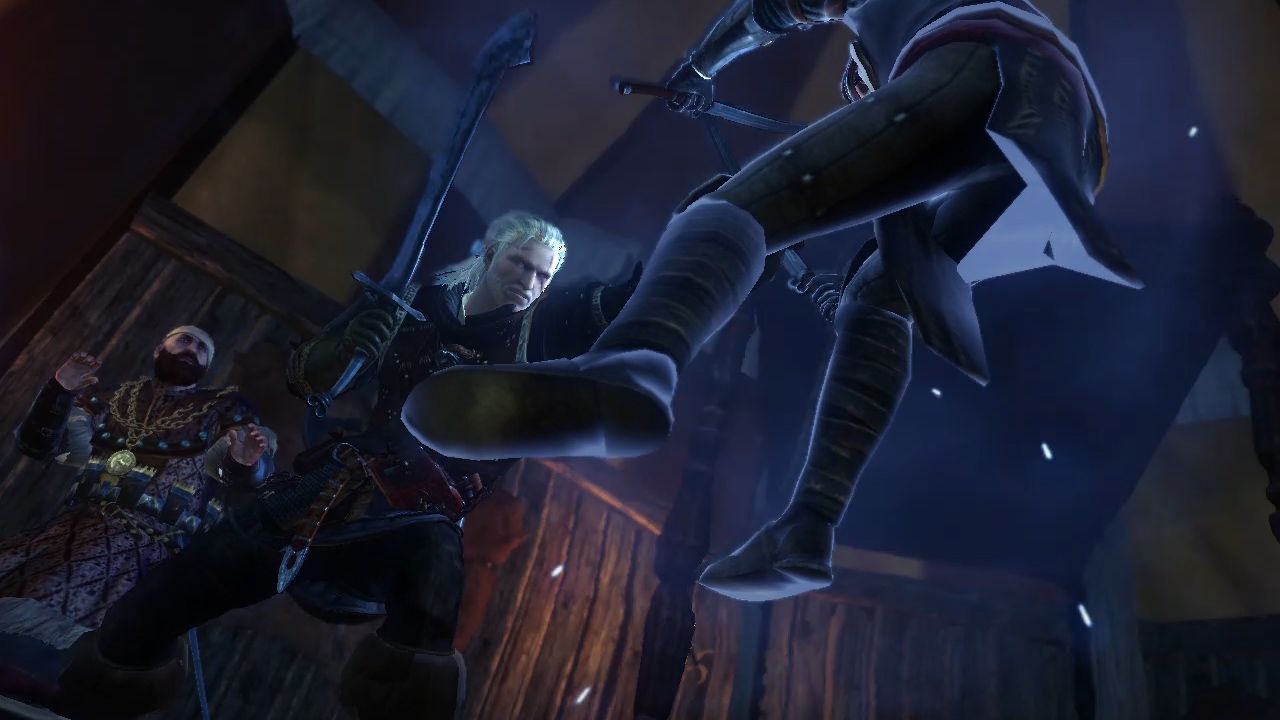
Part of the way it does this is by making sure that Letho, Serrit and Auckes aren’t shown to be one-dimensionally evil and morally reprehensible witchers, the kind that you’d be able to condemn and hate without a second thought. While they’re possibly a little naive to the full gravitas of their actions, those killing the northern kings for Emperor Emhyr aren’t utterly vindictive or malevolent characters. They’re just witchers, who’ve lived hard lives, arguably slightly harder than Geralt’s, given that their school’s headquarters, a mountain stronghold called Gorthur Gvaed, was destroyed by the Nilfgaardian Army during Emhyr’s predecessor’s reign, leaving its students to flee into the world, homeless and also banned from entering Nilfgaardian cities. Because of this, their decision to accept Emhyr’s offer, which, at least in theory, was to restore the Viper school in exchange for the witchers killing a few Northern monarchs, makes a degree of sense. Sure, it’d be easy for Geralt to argue that, if put in their position, he’d have stuck to being neutral and turned it down, but given how important the continued existence of Kaer Morhen as a winter home for him, Vesemir, Lambert and Eskel seems to be to the white wolf, who can say what he’d really have done.
This is what makes Letho and Geralt such a strong protagonist/antagonist dichotomy. In many ways, their lives mirror each other, with their shared vocation, their close relationships with the other witchers from their schools and their incredible fighting skills, but they still find themselves on opposite sides, largely because of one key factor. They have different definitions of to what degree it’s acceptable for a witcher to get involved in both war and politics. Letho seems to believe that, when it comes to this, a witcher should think about taking care of himself before he considers any moral quandaries. Sure, killing the Northern monarchs might have huge negative consequences for other people that he’s never met, but for Letho it could mean a chance at a better life for him and his fellow vipers than the one they’ve had to lead so far, while also allowing them to avoid the negative consequences that could well come with trying to turn down the Nilfgaardian Emperor.
This is certainly quite a selfish ethos, but it’s also quite a pragmatic one. Geralt, on the other hand, though his actions in-game are largely dictated by the player, seems to draw the line at doing certain things, no matter the reward and largely tries to stick to his moral credo of trying to choose the lesser evil in any political situation. Letho could argue that this makes Geralt a bit of a hypocrite, that the white wolf is defying the witcher’s code of neutrality by moulding the world to his vision through his choices and that if he truly wants to take a moral stand, he should take a leaf out of his fellow wolf witchers’ books and abstain from politics altogether as far as possible. Geralt might retort that his massive involvement in politics during the Witcher 2’s plot largely comes as a result of Letho having involved himself in it, with Geralt possibly feeling that he has a duty to stop Letho from bringing too much negative attention to their profession through his actions. Odds are it’d be quite a heated conversation.
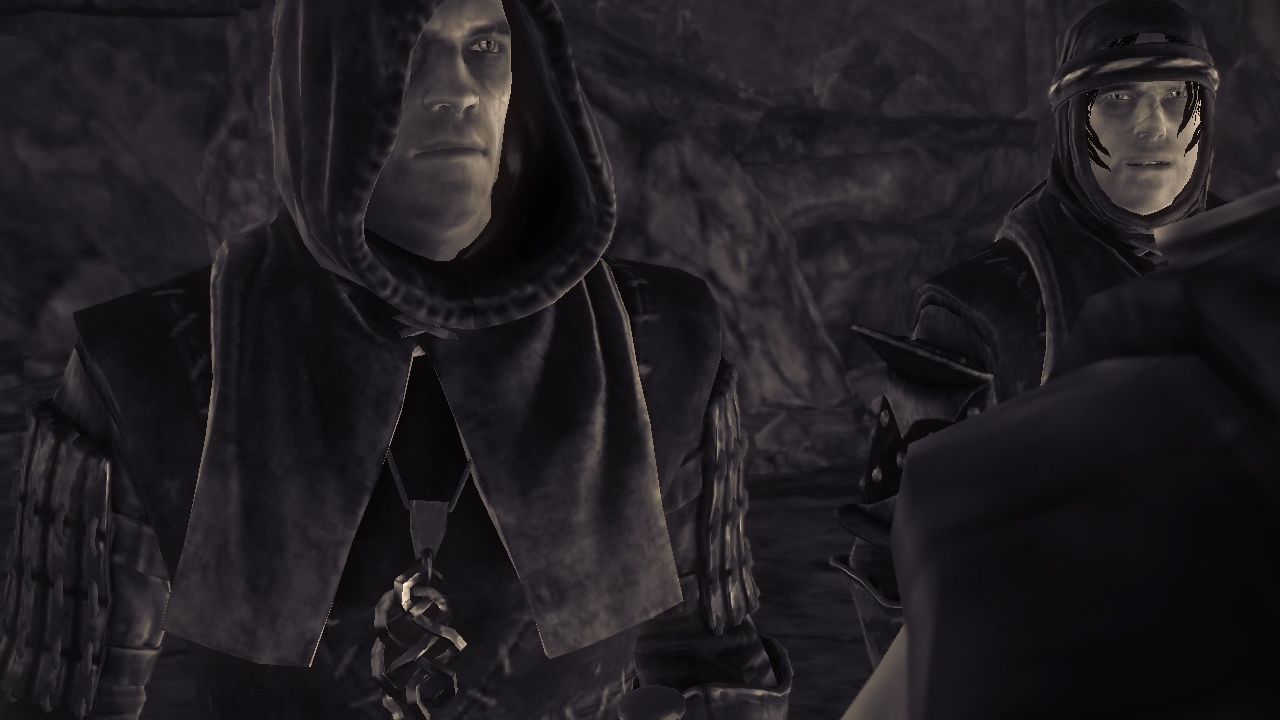
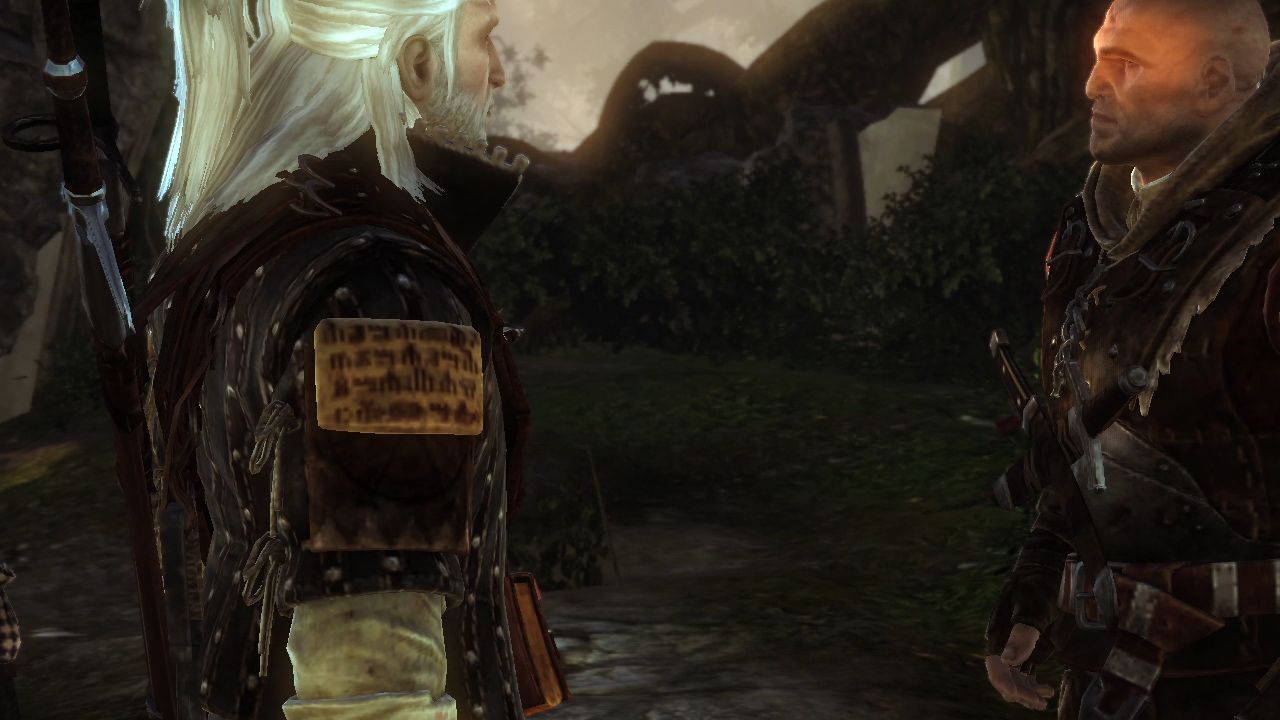
When the pair meet for their final showdown at Loc Muinne, in the shattered ruins of the Temerian camp, which is either coated in streaks of blood and decorated with piles of corpses or at the centre of a city that’s about to be sealed by mages, this isn’t the debate they have. Instead they discuss the hows and whys of what’s gone on over the course of the game, plus a little bit about Geralt’s past. Then, Geralt decides whether or not he feels he has to kill Letho. At the end of the day, no matter how much Letho insists that he’s not Geralt’s foe, the white wolf might decide that inadvertently framing him for Foltest’s murder is a crime worthy of death. However, if he takes a step back and really examines the man standing in front of him, what he sees might change his mind. A man cut from much the same cloth that he is, pushed to the opposing side only by a desire to restore his life to something similar to that which Geralt enjoys and willing to do anything in his power to make this so, even committing regicide. Is that enough to condemn him? Or should Geralt end Letho’s life for a different and less obvious crime that could have huge consequences for their kind going forwards, that being showing the would-be conquerors of the continent just how effective and deadly a witcher can be as a weapon of war?
If Geralt does kill Letho, the story of the Witcher 2 ends in Loc Muinne, with the Kingslayer’s corpse being left entombed in the ancient city. However, if he shows mercy, the final chapter in the tale of the assassin of kings bleeds into his next adventure and you get to see the real consequences that the Viper witcher faces for his actions. In the ruins of Reardon Manor, deep in the wilds of Velen, on the borders of a nation that’s gradually disintegrating due to the absence of the king he killed in the solar of La Valette Castle, Letho can be found, hiding out like a cornered rat in the loft of a booby trapped barn, having been betrayed not just by the Nilfgaardian Emperor who promised him the world, but by a supposed friend who’s betrayed his whereabouts to a ruthless bounty hunter chasing him. Geralt can help him track down and repay his former friend, then the two can go on to deal with the bounty hunters. Upon their arrival, Letho asks Geralt to wait a short distance from the hut where the hunters are based, then proceeds to take on the entire company of them single-handedly. He puts up a valiant fight, but then, he falls to the ground, lifeless. Geralt can choose to either kill the hunters or persuade them to take Letho’s medallion rather than his head back to the Emperor as proof of the Kingslayer’s demise, but either way, he notices that something isn’t quite right.
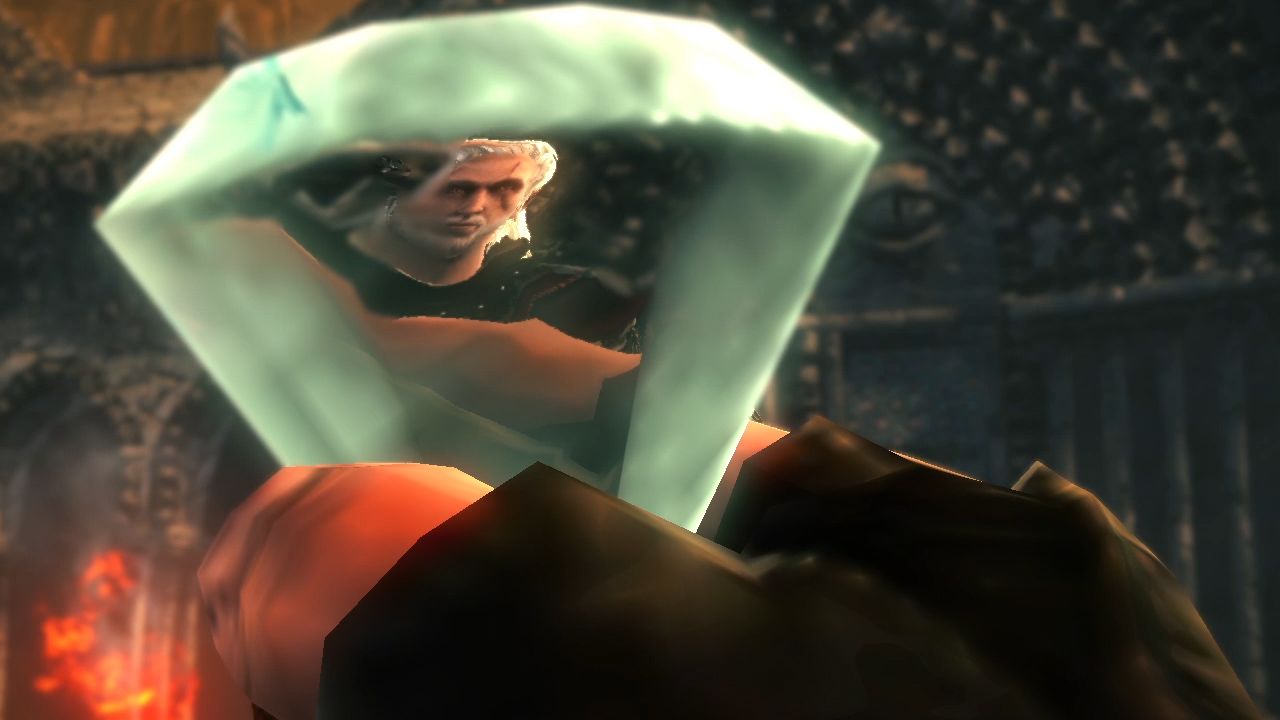
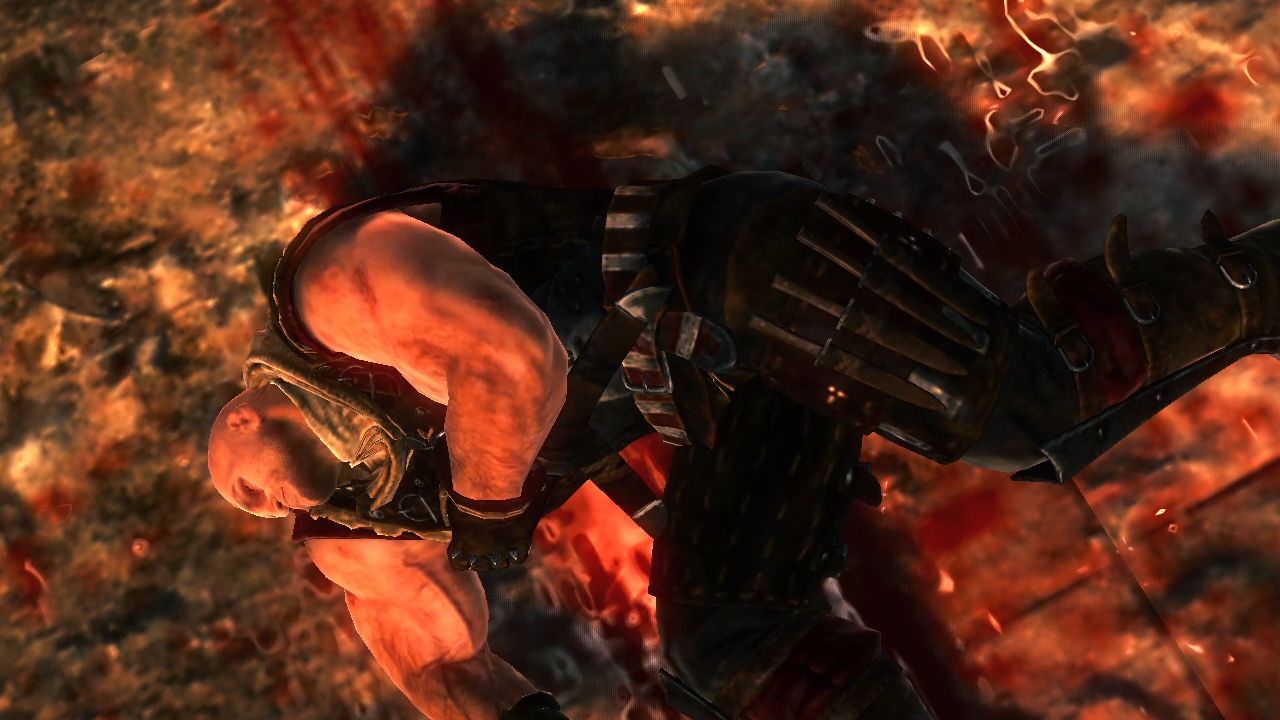
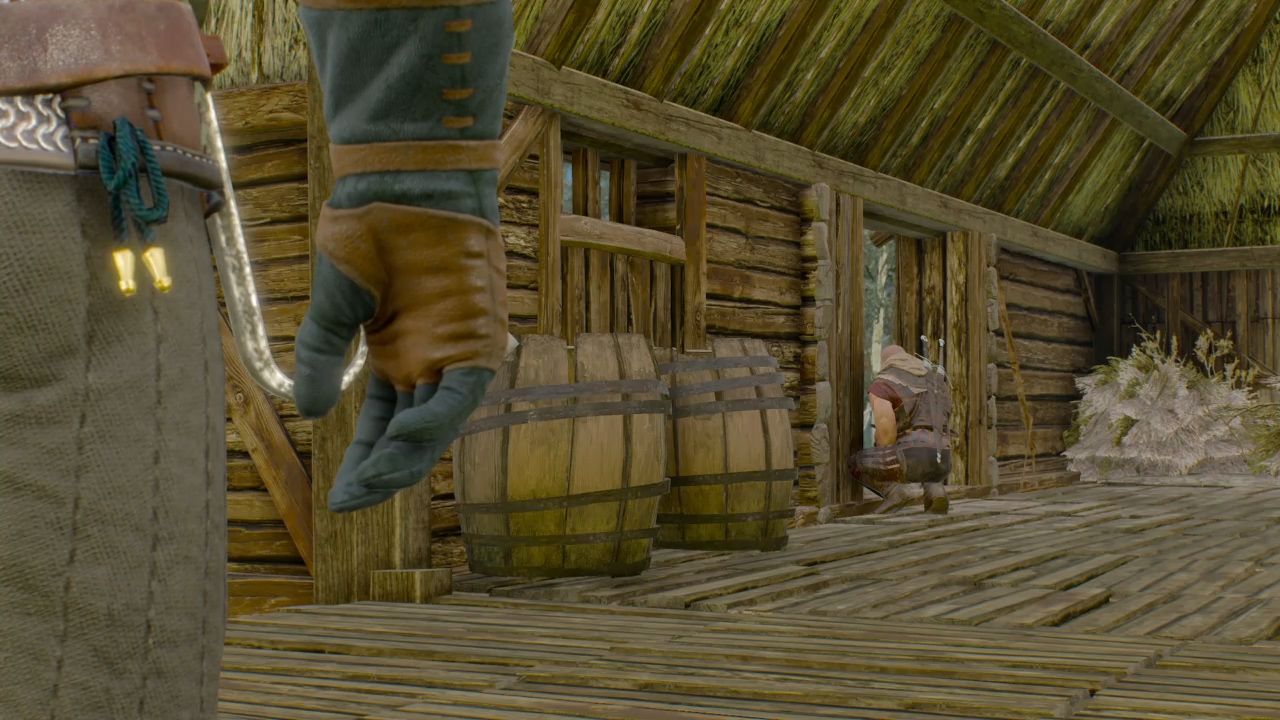
A short time later, he watches as Letho slowly comes back to life and then reveals his plan. By using a special poison, he’d hoped to expire in front of the bounty hunters so that they’d think the job was done, to fake his own death in order to escape the life of a fugitive. Depending upon Geralt’s actions, this plan may have worked. Either way, in the sheer semi-suicidal nature of this gambit, we see a reflection of the desperate and miserable life that Letho of Gulet now leads because of his choices. He’s gone from being the bane of the world, a near unstoppable force that irreversibly altered the course of history to a loner on the run, abandoned and betrayed by everyone, save possibly the man he once nearly condemned to the executioner.
At this point, Letho can disappear from Geralt’s life once and for all, or he can play a role in one final key event before he goes. Geralt can invite him to Kaer Morhen, to fight in the first battle against the wild hunt. Once this battle is over, Geralt and Letho say a definitive goodbye and the white wolf begins the final act of his adventure, which culminates in a final battle with the hunt. However, no matter how difficult the final showdown with Eredin, the hunt’s leader, may prove to be for Geralt, it’ll present a very different challenge to deciding the fate of a man who was never his foe, but instead, was a slightly darker reflection of himself.
